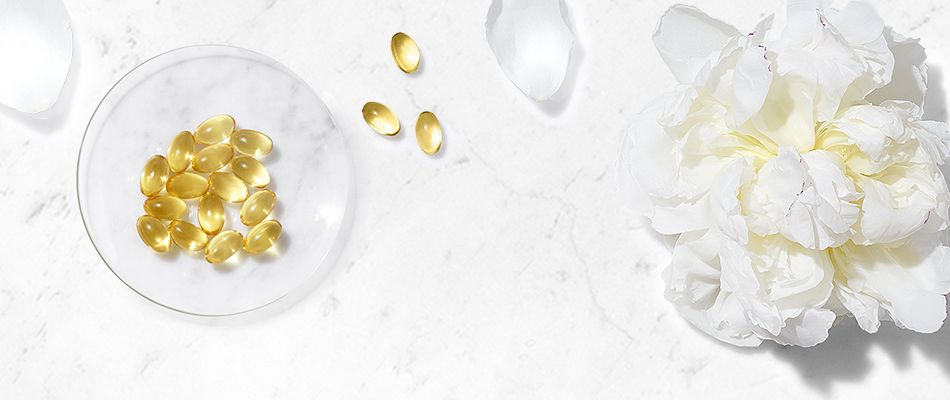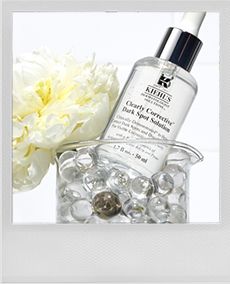
How to Treat Dark Spots & Discolorations
Wondering how to effectively target dark spots on your face, chest or arms? Learn more about the causes of dark spots and skin discolorations and how you can help visibly reduce existing marks while helping to prevent new ones from forming.
What are dark spots?
Dark spots are discolorations that are commonly seen on the face but may also appear on other parts of your body like your chest, back and arms. These skin discolorations are a form of hyperpigmentation that are often brown, but may also appear blue or grey in color depending on your skin tone.
What causes dark spots to form?
When skin becomes irritated or damaged, it may be triggered to produce melanin or pigment which can cause visible skin discolorations. The two main causes of dark spots are:
- UV Rays
- Skin Damage or Irritation
What is hyperpigmentation?
Hyperpigmentation is a common skin condition that occurs when a spot or area of the skin darkens due to an increase in melanin. Post-inflammatory hyperpigmentation occurs when skin becomes damaged or inflamed and causes skin to produce pigmentation. Post-acne marks are a common form of post-inflammatory hyperpigmentation.
How does the sun cause dark spots and discolorations?
In the same way that overexposure to UV rays can cause sunburn, the sun can also cause another type of pigmentation to form. Dark spots from the sun are also referred to as sun spots or age spots. In addition to forming new dark spots the sun can also cause existing discolorations to darken. Applying a facial sunscreen daily is an essential way to help defend skin from UV rays and help prevent sun spots from forming.
How do post-acne marks cause dark spots on the skin?
When skin experiences inflammation or irritation, it often produces pigmentation that can cause dark spots. Acne is a common cause of disruption that can cause skin to form a mark even after the blemish clears. When you have an acne blemish, treat it quickly and avoid picking at it. Agitating an existing blemish can increase the likelihood that a post-acne mark will form.
How can you help prevent dark spots?
To help prevent dark spots from forming, apply sunscreen with broad spectrum UVA/UVB protection every day to protect skin from damaging UV rays. While you may not see an immediate difference, this preventative step will significantly help your skin over time. If you also have dark spots caused by blemishes use skincare products for acne-prone skin to help reduce breakouts and keep skin clear and healthy-looking. The longer a blemish lasts may increase the likelihood that it will form a post-acne mark so treat any breakouts quickly with a targeted formula like a spot treatment with Salicylic Acid. Formulas with Vitamin C or Salicylic Acid may also help diminish dark spots and help to make them less visible.
How do you treat dark spots and discolorations?
Even if you are protecting your skin from the sun and helping maintain a clear complexion, existing dark spots can take a little time to fade. Brightening skincare products can help treat dark spots and visibly diminish their appearance over time. When you first notice dark spots, resist the urge to over-exfoliate your skin. Harsh scrubs can cause irritation which may even cause more dark spots.
What are the best skincare ingredients to help fade dark spots and discolorations?
Activated C is a Vitamin C derivative known to help visibly brighten skin. Within skincare formulas like Kiehl’s Kiehl’s dark spot corrector, Activated C helps decrease skin’s melanin production, prevent the formation of new melanin clusters, and even slow the melanin transfer to skin’s surface to help minimize the chance that visible discolorations will form. Activated C effectively penetrates skin and is active on the skin for a longer period of time than some other forms of Vitamin C making it an ideal ingredient to help brighten skin. Within skincare formulas, ingredients like Peony Extract and Licorice Root Extract are also known to help enhance clarity and luminosity. White Birch Extract is another skincare ingredient known to help prevent future dark spots and discolorations.
What is the best skincare routine for dark spots?
If you have an uneven skin tone, start a brightening skincare routine to help improve skin clarity. Start with an exfoliating face wash that can gently purify skin and remove dirt and pollution. After cleansing, apply a soothing treatment water using your hands or a cotton pad. Treat dark spots with a concentrated dark spot corrector or a brightening face mask to help even skin tone before smoothing on a skin brightening moisturizer to help visibly even skin tone and smooth skin’s texture. Rain or shine, finish your morning routine with a facial sunscreen to defend skin from UV rays and help prevent new dark spots from forming.
For optimal skin clarity, try formulas from Kiehl’s Dermatologist Solutions™ Clearly Corrective™ collection to help visibly brighten skin.
Kiehl's Tip
Boost Clarity with a Dark Spot Corrector
Clearly Corrective™ Dark Spot Solution
For a skin concern like dark spots and discolorations, a concentrated serum is an essential step in your routine. Formulated with Activated C, White Birch Extract and Peony Extract, our serum for dark spots is clinically-proven* to help visibly reduce dark spots, improve clarity, even skin tone and even diminish the appearance of post-acne marks. Apply morning and night for optimal skin clarity.
*Based on a 12-week clinical study of 17 women with all skin types presented with mild to moderate severity of attributes, including post-inflammatory hyperpigmentation.


